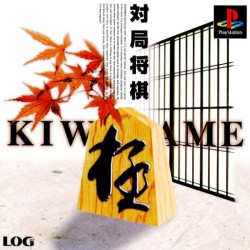Shogi, also known as Japanese chess, is a two-player board game in the same family as Western chess, chaturanga, and Chinese Xiangqi, and is the most popular of a family of chess variants native to Japan. Shogi means general's.
The earliest predecessor of the game, chaturanga, originated in India in the 6th century, and spread from China to Japan, where it spawned a number of variants. Shogi in its present form was played as early as the 16th century, while a direct ancestor without the "drop rule" was recorded from 1210 in a historical document Nichureki, which is an edited copy of Shochureki and Kaichureki from the late Heian period (ca 1120).
According to ChessVariants.com, "Perhaps the enduring popularity of Shogi can be attributed to its 'drop rule'; it was the first chess variant wherein captured pieces could be returned to the board to be used as one's own. David Pritchard credits the drop rule to the practice of 16th century mercenaries who switched loyalties when captured - no doubt as an alternative to execution."
Kiwame - Taikyoku Shogi is a shogi game, the game features a vs computer mode, a vs human mode, and also different matches with just the last movements to do. The game also features voice recording for all the movements.
Manufacturer's description:
Full-scale chess game equipped with the strongest brain that three consecutive was also achieved in the Computer Shogi Championship appeared to PS. Can be in combat sense "play Tsumeshogi" 300 questions, was largely the outcome the "next move" and recorded 300 questions, you can play plenty. Colorful opening book pairs for human beings which is mounted on for PS is, has been achieved early refers Shogi of 1 hand 10 seconds.
Features:
- First person perspective.
- 2D graphics
- Cartoon graphics
- Shogi theme.
|
|

